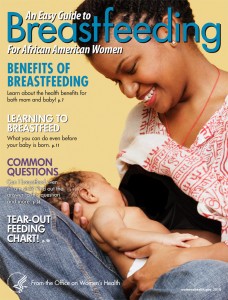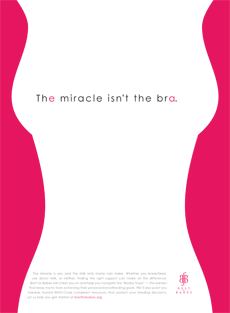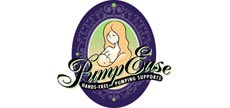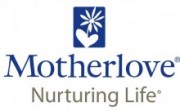By Elita of Blacktating.com for the Best for Babes Foundation ©2010
Here’s hoping you had a great Memorial Day weekend and were able to enjoy the outdoors with your kids. Did your weekend involve nursing in public? Of course here at Best for Babes we believe in a mom’s right to nurse in public however she feels most comfortable. Although some will still try to debate whether or not nursing in public is “appropriate,” for us that’s a no-brainer. Even before I had kids, I supported nursing in public, which is why I loved this post by blogger Arwyn of Raising My Boychick. Her “Letter in Defense of Public Breastfeeding,” was written before she became a mom, but still manages to completely capture why nursing in public is so important.
Breast cancer is a terrible disease that has claimed the lives of too many of our mothers, aunts, sisters, grandmothers and girlfriends. (Best for Babes Co-Founder Danielle Rigg is a cancer survivor.) Even if you’re lucky enough to not have been touched by breast cancer, you’re probably diligent about your self-checks and worry over strange lumps. Now imagine a time comes where you or your progeny don’t have those concerns because there is a breast cancer vaccine. That’s right, scientists have identified a protein that could potentially be used in developing a breast cancer vaccine. A researcher has created a vaccine that worked in mice and he’d like to begin human trials. There’s a catch, though; if the vaccine develops along the existing platform, women would be unable to breastfeed. We know that breastfeeding reduces the risk of breast cancer for moms and their daughters, and significantly reduces the risk of countless other diseases, including heart disease, the number one killer. We hope the researchers and their funders are weighing that cost.
Do you need yet another reason to breastfeed? How about the discovery of a probiotic in breast milk that actually decreases the strength of muscle spasms in the gut. This explains why formula-fed babies are more likely to have tummy problems. This probiotic could be used to treat a host of intestinal problems, like irritable bowel syndrome and constipation.
How far did your pregnancy last? Mine became mind-numbing as it stretched into week 42. I was jealous of those whose babies were kind enough to arrive by 36 weeks, but I should probably be more grateful for my son being fashionably late. According to this interesting and informative podcast with Marsha Walker, late pre-term infants are more susceptible to breastfeedng problems, even though they may look and act like full-term babies in other ways. If you had a baby born at 36 or 37 weeks, you should listen to the podcast for some great tips on solutions to the more common problems.
The Office of Women’s Health is updating its Easy Guide to Breastfeeding for African-American Women. You can help choose the cover art by voting here.
And finally, if you’ve had or adopted a baby within the last four years, please take a moment to answer this survey about your experience with formula marketing. The survey is being conducted by The Center for Science in the Public Interest.
Over 5,000 of you Like our Facebook Fan Page! This week we asked, “When I see a mom nursing in public, I _____”
and you were overheard saying…
Jeanine Watts Foley want to thank her ![]() )
)
Karen English Hope she feels more confident and comfortable than I did! And hope she knows there are people rooting for her (not just mums either).
Sarah Boye I get a big goofy grin and give her a thumbs up…and probably creep the hell out of her, but oh well!



 @BestforBabes
@BestforBabes Best For Babes
Best For Babes







I wish I had all this info in 1988 when I was 17 and pregnant, I tried so hard to do everything right, I did nurse exclusively but only because my baby was too smart to allow anything else to pass his lips until he was a year and a half. But I allowed him to be mutilated at birth, I’ll never forgive myself or the doctors that made it seem necessary. The open wound led to his ear infections which contributed to my breast infections which may have contributed to my current possable breast cancer. Talk about karma, I had my son mutilated and it may have led to my possable mutilation, but at least if I have my breast removed I will look just like my mom!
My daughter is on an antiobiotic (she is 6 months) I bought a probiotic to put in her cereal…should I not bother??
I am not a doctor so can’t advise you but my opinion is that it can’t hurt to give her some extra probiotics.
My son was on heavy duty antibiotics for meningitis. I kept EBF, but also gave him the probiotics to really help his tummy out. As a mom I recommend it. The hospital recommended Culturelle for kids.
WRT the formula marketing after the birth of a child, I wonder if that has variation by location of birth - I got a lot more direct-marketing mail with formula with my firstborn (who was born in a hospital-run birth center) six years ago than with my 2nd (homebirthed) almost 3 years ago and I haven’t gotten anything in the mail that I know of with the one born at home 2 weeks ago, but we just did his birth certificate paperwork last week so maybe they’ve not got round to us yet. Or my husband knows how much it would piss me off and is hiding that mail from me! FWIW, I signed up for Text4Baby and the texts from them have been pro-BF without much mention of formula (actually, if any mention was made I missed it).
Ahmie, I think the formula companies find us in a variety of ways, but typically it’s through your OB, the hospital (particularly the people who take the newborn pictures,”Our 365″), maternity and baby stores, and gift registries. If you gave birth at home with a midwife and didn’t have a registry, they probably won’t find you.